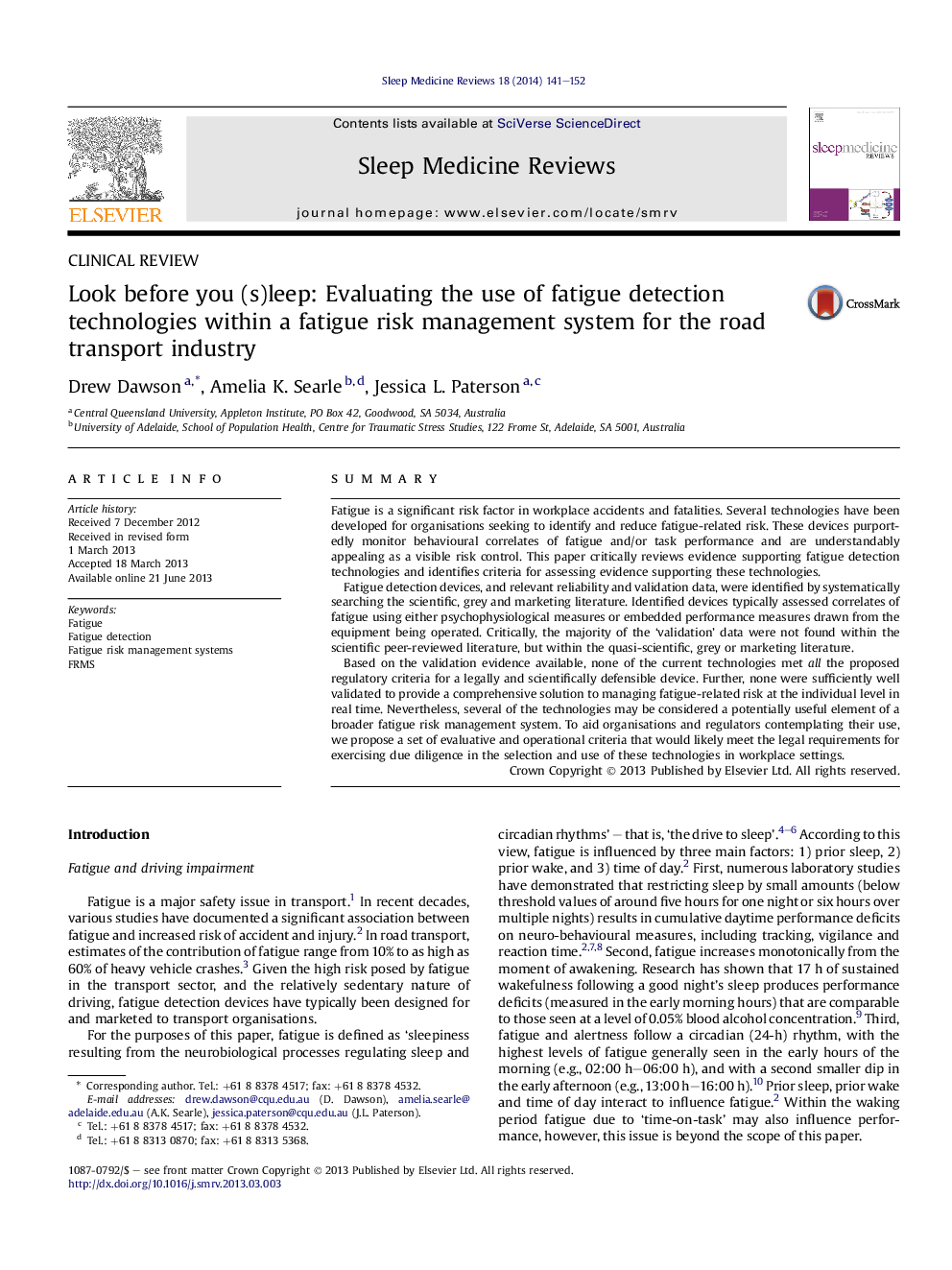| Article ID | Journal | Published Year | Pages | File Type |
|---|---|---|---|---|
| 3091542 | Sleep Medicine Reviews | 2014 | 12 Pages |
SummaryFatigue is a significant risk factor in workplace accidents and fatalities. Several technologies have been developed for organisations seeking to identify and reduce fatigue-related risk. These devices purportedly monitor behavioural correlates of fatigue and/or task performance and are understandably appealing as a visible risk control. This paper critically reviews evidence supporting fatigue detection technologies and identifies criteria for assessing evidence supporting these technologies.Fatigue detection devices, and relevant reliability and validation data, were identified by systematically searching the scientific, grey and marketing literature. Identified devices typically assessed correlates of fatigue using either psychophysiological measures or embedded performance measures drawn from the equipment being operated. Critically, the majority of the ‘validation’ data were not found within the scientific peer-reviewed literature, but within the quasi-scientific, grey or marketing literature.Based on the validation evidence available, none of the current technologies met all the proposed regulatory criteria for a legally and scientifically defensible device. Further, none were sufficiently well validated to provide a comprehensive solution to managing fatigue-related risk at the individual level in real time. Nevertheless, several of the technologies may be considered a potentially useful element of a broader fatigue risk management system. To aid organisations and regulators contemplating their use, we propose a set of evaluative and operational criteria that would likely meet the legal requirements for exercising due diligence in the selection and use of these technologies in workplace settings.
